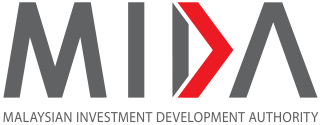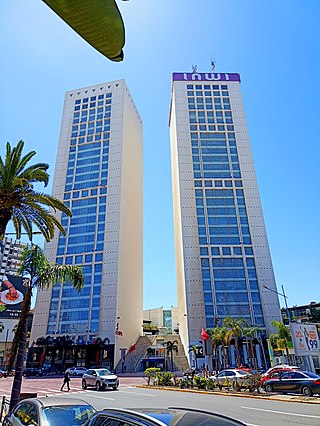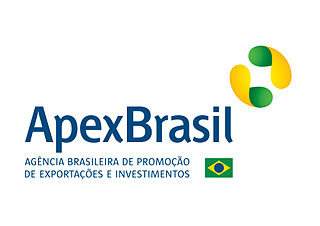Related Research Articles

The economy of Kazakhstan is the largest in Central Asia in both absolute and per capita terms. In 2021, Kazakhstan attracted more than US$370 billion of foreign investments since becoming an independent republic after the dissolution of the former Soviet Union.

A foreign direct investment (FDI) refers to purchase of an asset in another country, such that it gives direct control to the purchaser over the asset. In other words, it is an investment in the form of a controlling ownership in a business, in real estate or in productive assets such as factories in one country by an entity based in another country. It is thus distinguished from a foreign portfolio investment or foreign indirect investment by a notion of direct control.
The Thailand Board of Investment (BOI) or The Office of the Board of Investment is an agency of the Government of Thailand. Its mission is to promote foreign investment in Thailand by providing information, services, and incentives to interested foreign investors. The office operates under the aegis of the Prime Minister's Office. The BOI operates 14 offices in major world cities as well as regional offices throughout Thailand.

The Malaysian Investment Development Authority, abbreviated MIDA, previously known as Malaysian Industrial Development Authority is the government's principal agency to oversee and drive investment into the manufacturing and services sectors in Malaysia. Starting operations in 1967, MIDA was given the mandate to promote investments in the manufacturing and services sectors; and to advise the Ministry of International Trade and Industry (MITI) on industry matters including the formulation of related policies.
A tax incentive is an aspect of a government's taxation policy designed to incentivize or encourage a particular economic activity by reducing tax payments.
The China International Fair for Investment and Trade (CIFIT, simplified chinese:中国国际投资贸易洽谈会, traditional chinese:中國國際投資貿易洽談會), approved by the State Council of the People's Republic of China, takes place on September every year in Xiamen, China. Themed on Introducing FDI and Going Global, CIFIT features a focus upon nationality and internationality, upon investment negotiation and investment policy promotion, upon coordinated development of national and regional economy, and upon economic and trade exchanges across the Taiwan Strait. CIFIT is currently China's only international investment promotion event aimed at facilitating bilateral investment. It's also the largest global investment event approved by UFI.

Foreign direct investment in Iran (FDI) has been hindered by unfavorable or complex operating requirements and by international sanctions, although in the early 2000s the Iranian government liberalized investment regulations. Iran ranks 62nd in the World Economic Forum's 2011 analysis of the global competitiveness of 142 countries. In 2010, Iran ranked sixth globally in attracting foreign investments.

The Serbia Investment and Export Promotion Agency was a Serbian investment promotion agency. Established on 28 February 2001 by the government of Serbia, the agency promoted foreign direct investment (FDI), and supported companies seeking to set up or expand their business operations in Serbia.

SARIO, Slovak Investment and Trade Development Agency is a government agency established in the Slovak Republic in 2001, which works under the direction of the Ministry of Economy of the Slovak Republic.
In 2012, Romania's largest trading partner was Germany, followed by Italy. Romania's main exports to Germany were insulated wire, cars and vehicle parts, whereas its main German imports are cars and vehicle parts. The principal Italian imports to Romania include hides, footwear parts, medicaments, telephones and vehicle parts. Romania's chief exports to Italy included leather footwear, cars, telephones, tobacco, men's suits, seats and iron pipes.

Investment in Morocco covers the foreign direct investments (FDIs) made into Morocco by investors that increases the economy of Morocco. The largest investment in terms of regions come from France and the European Union more generally. The second largest investments come from the Arab world in particular the United Arab Emirates. Investments are primely in tourism, which receiving about 33% of the total FDI, followed by the real estate sector and the industrial sector.
An international investment agreement (IIA) is a type of treaty between countries that addresses issues relevant to cross-border investments, usually for the purpose of protection, promotion and liberalization of such investments. Most IIAs cover foreign direct investment (FDI) and portfolio investment, but some exclude the latter. Countries concluding IIAs commit themselves to adhere to specific standards on the treatment of foreign investments within their territory. IIAs further define procedures for the resolution of disputes should these commitments not be met. The most common types of IIAs are bilateral investment treaties (BITs) and preferential trade and investment agreements (PTIAs). International taxation agreements and double taxation treaties (DTTs) are also considered IIAs, as taxation commonly has an important impact on foreign investment.

Invest KOREA (IK), Korea's national investment promotion agency, was established as part of the Korea Trade-Investment Promotion Agency (KOTRA) to promote foreign direct investment (FDI) to Korea. It provides comprehensive services for all investment stages of Korea, including investment feasibility study, investment execution, and grievance resolution.

Invest Lithuania is the national investment promotion agency responsible for the attraction and retention of foreign direct investment (FDI) in Lithuania. The agency provides free-of-charge services to companies interested in launching or expanding their operations in Lithuania. Since its inception in 2010, Invest Lithuania has attracted over 330 international companies to the country, which created over 37,000 jobs in total.
The Vanuatu Foreign Investment Promotion Agency (VFIPA), is Vanuatu's National investment promotion agency. It was established by the foreign investment act [cap 248] in 1998 and operating as a unit under the department of Trades and Industry with a mandate to "promote and facilitate foreign investments into Vanuatu."
Foreign direct investments in Kosovo play an important role in the region's economy. However, this type of investment has historically been limited. Foreign sovereign investors in Kosovo primarily include regional European countries such as Germany, Turkey, Albania, Croatia, and North Macedonia. A majority of foreign investment is concentrated in Pristina, with particular focus in the areas of banking, construction, and transportation.
A foreign direct investment (FDI) is an investment in the form of a controlling ownership in a business in one country by an entity based in another country. It is thus distinguished from a foreign portfolio investment by a notion of direct control. Broadly, foreign direct investment includes "mergers and acquisitions, building new facilities, reinvesting profits earned from overseas operations, and intra company loans". FDI is the sum of equity capital, long-term capital, and short-term capital as shown in the balance of payments. FDI usually involves participation in management, joint-venture, transfer of technology and expertise. Stock of FDI is the net cumulative FDI for any given period. Direct investment excludes investment through purchase of shares.
Foreign direct investment and the environment involves international businesses and their interactions and impact on the natural world. These interactions can be observed through the stringency applied to foreign direct investment policy and the responsiveness of capital or labor incentive for investment inflows. The laws and regulations created by a country that focuses on environmental regimes can directly impact the levels of competition involving foreign direct investment they are exposed to. Fiscal and financial incentives stemming from ecological motivators, such as carbon taxation, are methods used based on the desired outcome within a country in order to attract foreign direct investment.
Investment incentive is a government-implemented incentive policy aimed to encourage investors into its domestic market or to promote expansion of existing businesses. Investment incentives encompass creating an environment that enables foreign businesses to operate profitably and decreases risks. They are widely used by developing countries to attract investments. The incentives take form of "direct subsidies or corporate income tax credits that compensates the investors for their capital costs".

The Brazilian Trade and Investment Promotion Agency, or ApexBrasil is both the trade promotion organisation (TPO) and the investment promotion agency (IPA) of Brazil. Founded in 1997 as a subsidiary of the micro and small business support organisation SEBRAE, ApexBrasil became in 2003 an autonomous non-profit entity funded by the private sector and supervised by the Federal Government of Brazil. Formally linked to the Foreign Ministry since 2016, it promotes Brazilian products and services abroad, attracts foreign direct investment and supports national companies, especially small and medium-sized, on their international journey. Through its programmes and services, ApexBrasil supports approximately one third of Brazil's annual exports and contributes to facilitate at least one fourth of its foreign direct investment (FDI) inward flows each year. More than 15 thousand Brazilian companies are directly supported by the agency, virtually all of them micro, small or medium-sized.
References
- ↑ Abamu, Bamituni E. (23 November 2019). "Introducing Investment Promotion: A Marketing Approach to Attracting Foreign Direct Investment". International Journal of Marketing Studies. 11 (4): 91. doi: 10.5539/ijms.v11n4p91 . S2CID 209391551.
- ↑ Campisi, Julian M.; Sottilotta, Cecilia Emma (2016). "Unfriendly or Unwanted? Reflections on FDI Attraction Policies in Italy". Rivista Italiana di Politiche Pubbliche. 11 (2): 223–250. doi:10.1483/83927.
- ↑ Bellac, C.; Leibrecht, M.; Stehrer, Robert (2008). "Policies to attract Foreign Direct Investment: An industry-level analysis". EconStor. hdl: 10419/121201 .